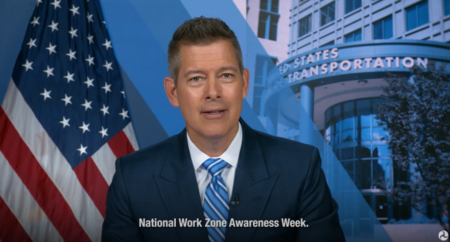A new report from the International Transport Forum (ITF) at the OECD (Organization for Economic Co-operation and Development), setting out a radically new approach in road safety, has won the 2016 Special Award of the prestigious Prince Michael of Kent International Road Safety Awards.
The award-winning study by a group of 30 international road safety experts from 24 countries, convened by the ITF, reviews the experiences of countries that have made it their long-term objective to completely eliminate fatal road crashes.
Originating in Sweden, the ‘Vision Zero’ concept has proved to be not merely a utopian ideal, but a demonstrably realistic ambition. To support this view, the ITF cites:
88 European cities with a population above 100,000 have not had any road fatalities over the course of a whole year. The biggest among them are Nottingham in the UK (pop. 289,000), Aachen in Germany (pop. 260,000), and Espoo in Finland (pop 259,000);
16 European towns above 50,000 inhabitants experienced no road deaths for five years running, with nine in the UK, six in Germany, and one in Norway;
Not a single child died as result of a bicycle crash in Sweden in 2008.
The award-winning ITF report, Zero Road Deaths and Serious Injuries: Leading a Paradigm Shift to a Safe System (right), offers guidance for leaders that want to drastically reduce the road deaths in their communities, and sets out how a ‘safe system’ approach to road safety can underpin this goal. The report’s core recommendations to policy makers and the road safety community are:
Be ambitious think safe roads, not just safer roads, as the conventional approach seeks incremental improvements to current practice, whereas a safe system works backward from the vision of zero road deaths and creates new perspectives on how to do it;
Be resolute foster a sense of urgency and lead the way, as in communities that have adopted a safe system, innovation occurred where political leaders strongly felt that the current approach no longer delivered;
Be inclusive establish shared responsibility for road safety, as avoiding crashes is the responsibility of the road user, with a safe system requiring everyone with a role in the traffic environment to recognize this role and assume responsibility for making traffic safe;
Be concrete underpin aspirational goals with concrete operational targets, as establishing milestones that are attainable for clearly defined groups or issues show the overall vision of zero road deaths is long-term, but realistic.
Congratulating ITF on the award, Prince Michael of Kent, said, “The new report comes at a time when the world needs to change up a gear or two to accelerate efforts to reduce the unacceptable toll of death and serious injury on our roads. It is a most welcome addition to the all-important bank of knowledge available to governments, and a fine example of the leadership shown by ITF.”
José Viegas, Secretary-General of the ITF, commented, “Our new report wants to entice countries and cities to embark on a journey and turn their road traffic into a Safe System. This prestigious award is a fantastic encouragement for us.”




